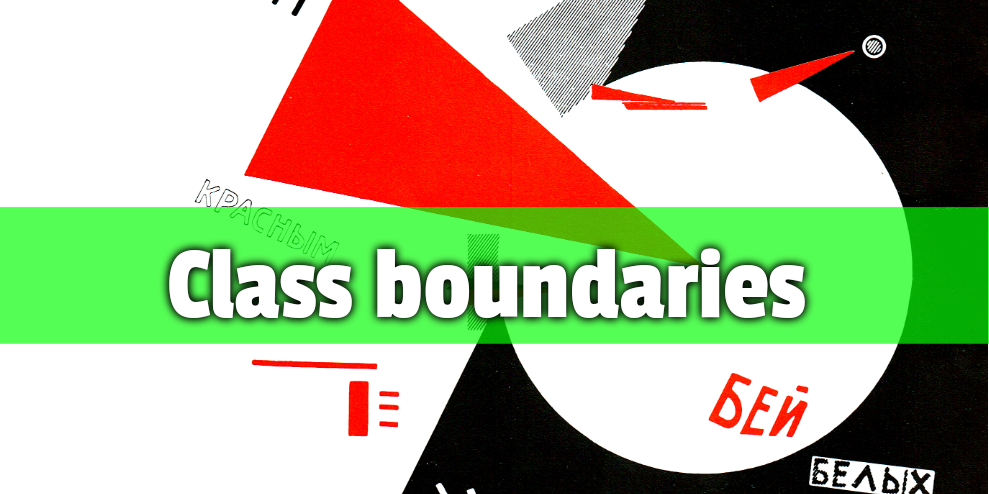Class boundaries

Basic political positions that express the nature of the proletariat as a universal class and whose negation means the passage from one tendency or method of analysis to the opposite class terrain.
The axes that define class boundaries are fundamentally two: internationalism and centralism. Internationalism expresses the universal nature of the proletariat in its most obvious geographical sense: the unity of class interests regardless of where the class is exploited; centralism its nature as a historical unit determined by its future and its program, not by the divisions, fractures and scars that, at every moment, reflect the inherent and inevitable alienation of a society divided into classes.
Thus, in decadence, when supporting any inter-bourgeois conflict can no longer have a progressive meaning, taking sides in any warlike conflict between two bourgeois fractions or any two states, can only be a denial of the most basic internationalism, turning the defender of inter-bourgeois war into a recruiter for imperialist slaughter. There is no other tactic possible in the face of any internal confrontation within the ruling class or between it and factions or groups in support of alternative forms of state capitalism than revolutionary defeatism.
And in the same way, when an organization or current postulates the need to divide the struggles or political expressions of the class according to situations that are given by the contingent conditions of exploitation (type of contract, contracting company, etc.) or "identities" defined by the discriminations suffered (race, nationality, sex, age group, etc.), in reality they are accepting the existence of differentiated interests in a permanent way. In both cases, the universality of the programme and with it the character of universal class disappears. In the first case, universality would be replaced by a mere changing sum of particular interests born of the organization of labor that is decided at each moment by capital. In the second, the class program would be subordinated to the interests of supposed political subjects (race, nation, sex, generation) that would transcend the class division of society.
To crown things off, some versions -such as so-called "class-conscious feminism"- attempt to reconcile class with identity divides. The revolutionary political subject would be defined by the "intersection" of two "identities", that of class and that of sex, generating two differentiated political subjects with their own more or less compatible programmes and organizations (the female and male proletariat); but the proletariat is not an "identity" and "class culture", let alone "female working class culture" or "male working class culture", is far from being class consciousness.This is not based on the particularity of certain conditions or experiences but on the universality of exploitation, which is what drives a program, a perspective based on the affirmation of generic, universal human needs... the only perspective that carries the only mode of production that can overcome capitalism, communism, which is in turn the end of all exploitation and oppression within the species.
The road that leads to crossing class boundaries passes through various forms of opportunism but is always fed by a weakening of communist morality: confidence in the ability of the universal working class to impose the satisfaction of human needs as the ordering criterion of society and its productive metabolism.
http://dictionary.marxismo.school/Class boundaries